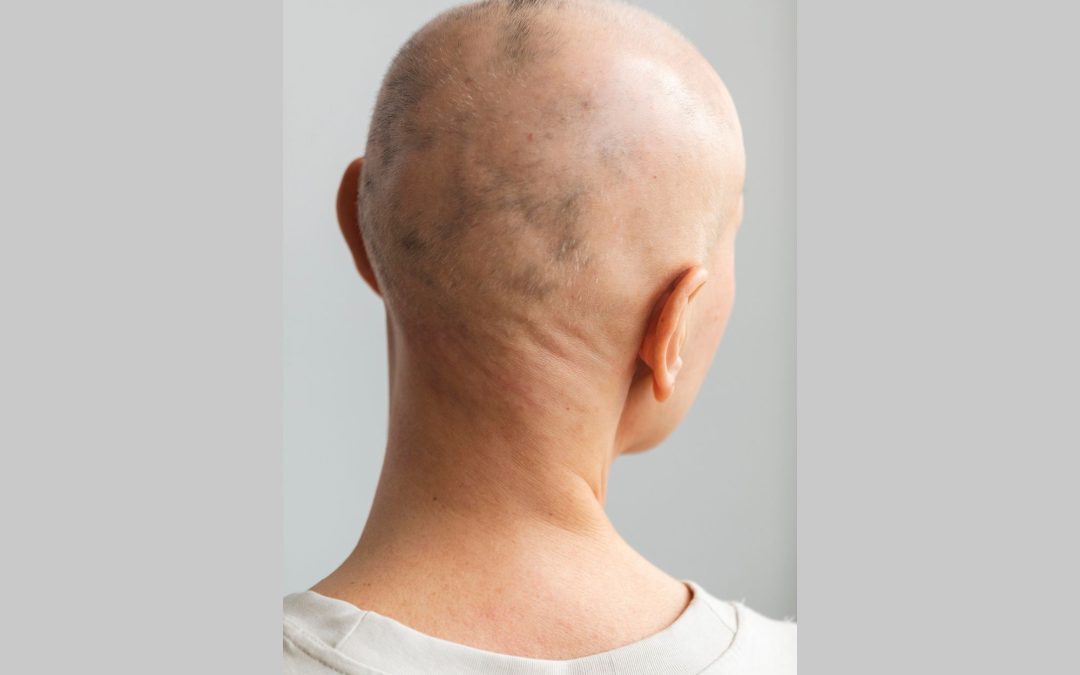Hair loss, a common concern for both men and women, can significantly impact confidence and self-esteem. For those experiencing alopecia, an autoimmune condition that causes hair loss, finding effective solutions can be particularly challenging. Fortunately, scalp micropigmentation (SMP) in Boston has emerged as a promising option to address alopecia and achieve a fuller-looking head of hair.
What is Scalp Micropigmentation (SMP)?
Scalp micropigmentation, sometimes referred to as medical hair tattooing, is a non-surgical procedure that utilizes microneedles to deposit pigment onto the scalp. This pigment mimics the appearance of hair follicles, creating a realistic illusion of thicker, denser hair.
Why Consider Scalp Micropigmentation in Boston for Alopecia?
For individuals with alopecia, scalp micropigmentation in Boston offers several advantages:
- Conceals Hair Loss: SMP effectively camouflages thinning hair and bald spots caused by alopecia. The pigment pigments deposited on the scalp closely resemble natural hair follicles, providing a natural-looking and undetectable solution.
- Non-Surgical Procedure: Unlike hair transplants, which require surgery and anesthesia, SMP in Boston is a completely non-invasive treatment. This translates to minimal discomfort and a quicker recovery time.
- Faster Recovery: Compared to hair transplants, which involve a surgical process and subsequent healing period, scalp micropigmentation boasts minimal downtime. You can typically resume your daily activities shortly after the procedure.
Scalp Micropigmentation in Boston: Important Considerations
While scalp micropigmentation offers a compelling solution for alopecia, there are a few key factors to consider:
- Type of Alopecia: Different forms of alopecia exist. While SMP can be effective for various types, consulting a qualified professional in Boston is crucial to determine if it’s suitable for your specific case.
- Finding the Right Technician: Finding an experienced technician specializing in scalp micropigmentation in Boston is essential. This ensures they have the expertise to create a natural-looking result that complements your hair density and style.
Consultation is Key: Before undergoing SMP in Boston, a consultation with a dermatologist or trichologist is highly recommended. This allows you to discuss your options, understand the procedure in detail, and determine if scalp micropigmentation aligns with your goals and expectations.
By exploring scalp micropigmentation in Boston, individuals with alopecia can regain confidence and achieve a fuller-looking head of hair. Remember, consulting with a qualified professional is the first step towards achieving a successful outcome.
Frequently Asked Questions
Scalp micropigmentation (SMP) in Boston is gaining traction as a popular solution for hair loss, particularly for those with alopecia. Here, we answer 16 frequently asked questions to help you decide if SMP is the right choice for you:
General SMP Inquiries
- What is scalp micropigmentation?
Scalp micropigmentation is a non-surgical cosmetic procedure that utilizes microneedles to deposit pigment onto the scalp, mimicking hair follicles for a thicker, denser hair appearance.
- Does SMP grow new hair?
No, SMP is a cosmetic solution and doesn’t stimulate hair growth. However, it creates the illusion of thicker hair.
- Is SMP in Boston painful?
Most people experience minimal discomfort during SMP. A topical anesthetic can be applied further to minimize any sensation.
- How long does scalp micropigmentation in Boston last?
SMP results typically last 5-6 years, after which slight fading may occur. Touch-up sessions can maintain the desired look.
SMP for Alopecia
- Is SMP effective for alopecia?
SMP can be a great option for various forms of alopecia, effectively concealing hair loss and bald spots.
- Should I consult a doctor before SMP for alopecia?
Absolutely. Consulting a dermatologist or trichologist in Boston helps determine if SMP suits your specific alopecia type and discuss other treatment options.
Procedure and Aftercare
- What happens during an SMP procedure in Boston?
A qualified technician will match the pigment color to your natural hair and use microneedles to deposit it precisely on your scalp, replicating hair follicles.
- How long does an SMP session take?
The duration varies depending on the area treated and hair loss severity. Generally, SMP in Boston takes a few hours, often requiring multiple sessions spaced a few weeks apart.
- Is there any downtime after SMP?
Scalp micropigmentation is a non-invasive procedure with minimal downtime. You can expect slight redness for a couple of days after the session but can typically resume normal activities quickly.
- How do I care for my scalp after SMP?
Following the technician’s aftercare instructions is crucial. This might include avoiding strenuous activity, sunlight exposure, and swimming for a short period.
Finding the Right Provider
- What should I look for in an SMP technician in Boston?
Seek an experienced and qualified technician with a proven track record in scalp micropigmentation, particularly for clients with alopecia.
- Does insurance cover SMP in Boston?
Since SMP is considered a cosmetic procedure, insurance typically doesn’t cover it.
Cost and Results
- How much does scalp micropigmentation in Boston cost?
The cost varies depending on the experience of the technician, the treated area, and the number of sessions required.
- What are realistic expectations for SMP results?
SMP offers a natural-looking, denser hair appearance. However, it’s not an exact replica of real hair growth. Discuss desired results with your technician beforehand.
- Can I style my hair after SMP?
Yes, you can style your hair as usual after the healing period. In fact, SMP can even complement existing hairstyles for a fuller look.
- Is SMP a permanent solution?
While the pigments don’t “wash out,” they gradually fade over time (around 5-6 years). Touch-up sessions can maintain the desired look.


Recent Comments